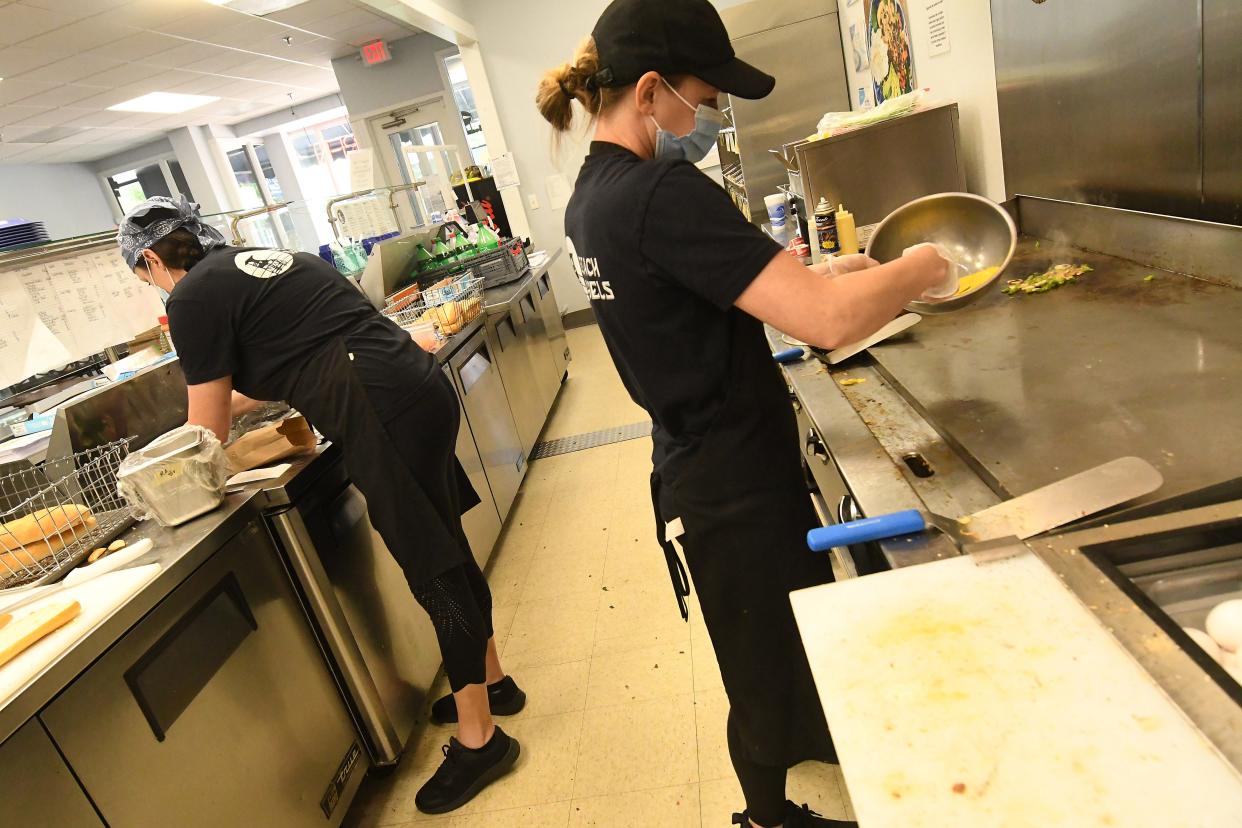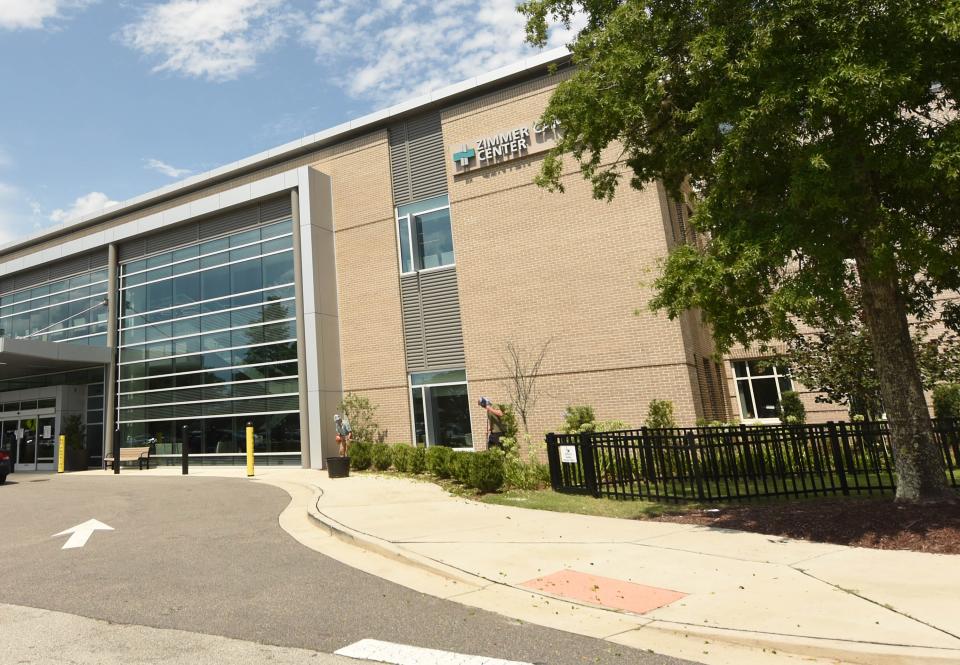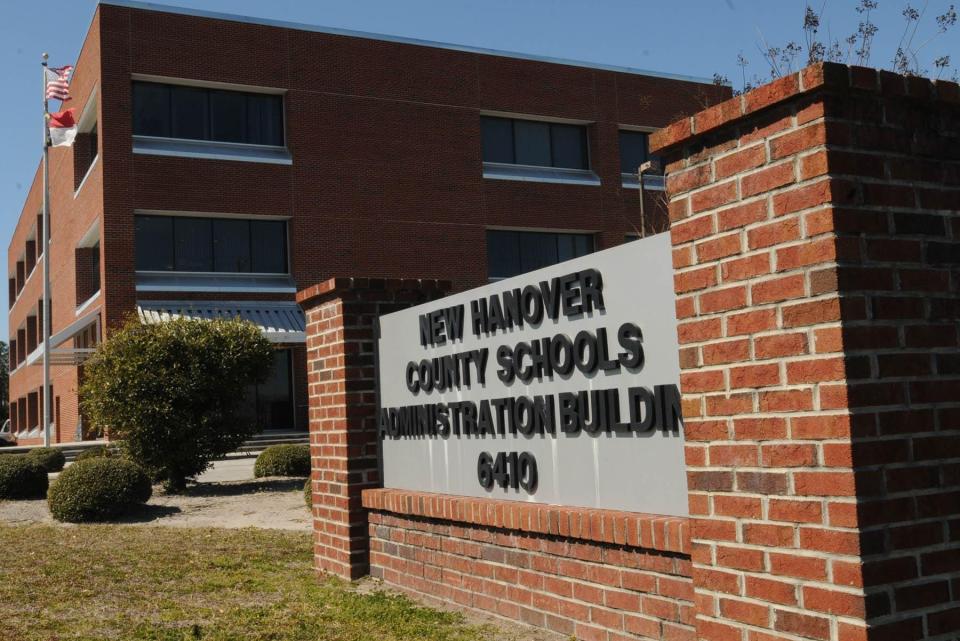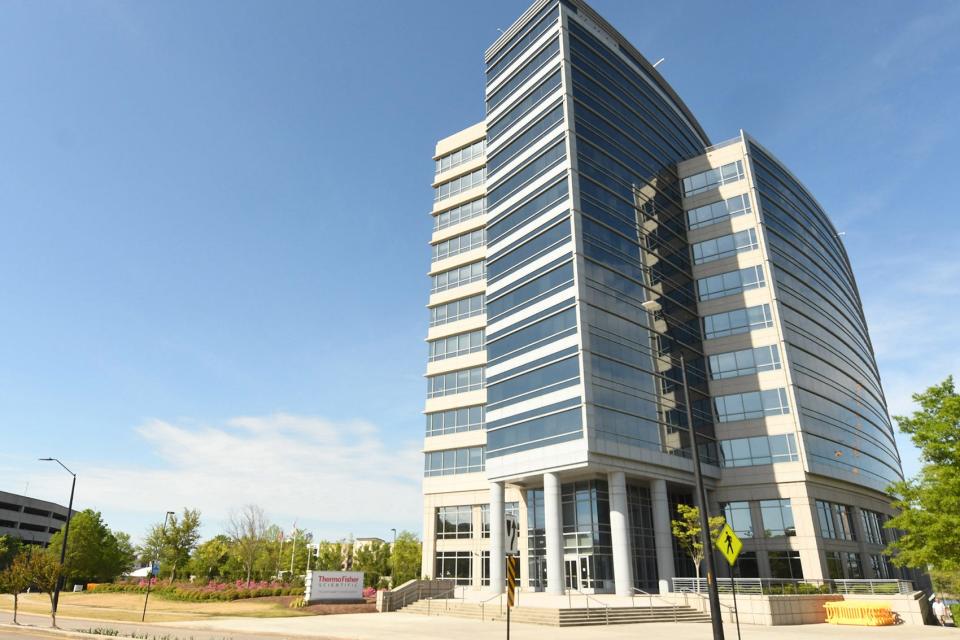A ‘slow burn of uncertainty’: How top Wilmington employers are faring amid economic anxiety

Wilmington’s job market remains strong even as whispers of a future economic downturn could force some local employers to brace for a drop in business.
The market for jobs remains strong both on a national and local level, despite attempts by the U.S. Federal Reserve System to tamp down inflation by raising interest rates, said Mouhcine Guettabi, Wilmington’s regional economist and an associate professor of economics at the University of North Carolina Wilmington.
In fact, the number of jobs in the U.S. climbed by 236,000 in November, according to a recent report from the U.S. Bureau of Labor Statistics. The number of people employed in New Hanover County exceeds pre-pandemic levels, Guettabi said, and the area bounced back more quickly than other North Carolina cities following the economic impacts of the COVID-19 pandemic.
More:Could the slowing economy take the financial wind out of NC's offshore wind farms?
More:Inflation hitting Wilmington residents hardest at the grocery store
“We're still seeing economic growth, employment growth, even though there is this narrative, this discomfort, about economic decline,” Guettabi said.
He attributes this strong job market to steady consumer spending and employers who are hesitant to lay off workers after experiencing prolonged labor shortages during the pandemic. That creates somewhat of a “messy economic picture" of the labor market on a local and national level, Guettabi said.
The Federal Reserve’s hiking interest rates in an attempt to get inflation under control will have an impact on business and the local economy, but there’s lag time between when interest rates go up and when businesses feel an impact.
“It seems like it's a healthy labor market, but again, there is some of this uncertainty that's brewing under the surface,” Guettabi said. “It’s just going to be this slow burn of uncertainty.”
The labor market in New Hanover County is buoyed, in part, by its five largest employers, which include Novant, the New Hanover County school system, the University of North Carolina Wilmington, PPD and New Hanover County.
Each organization employs more than 1,000 people, according to the N.C. Department of Commerce. In 2020, there were 104,792 people employed in New Hanover County with approximately 7,935 total employers, according to the latest data from the U.S. Census Bureau.
Salary databases:Here's how much government employees make in the region

Three of the county’s top five employers – the public school system, UNCW and New Hanover County – are in the public sector, a factor that could help insulate the county, at least to some extent, from sudden shifts in employment.
The private sector tends to be less nimble than public sector companies, meaning they can easily hire when the economy is booming and trim their workforce during an economic downturn, Guettabi said.
“The structure of the institutions means that we're not going to see an immediate big decline,” Guettabi said, “but … these institutions are still reliant on revenues that are going to come from consumer spending or from economic activity being robust.”
While the region’s biggest employers might be more sheltered from rising interest rates and inflation, Guettabi sees other companies as more vulnerable to shifts in the economy. The tourism and leisure industry, for example, could take a hit if consumers decide to forgo travel to save money as inflation climbs.
“Any businesses that are doing luxury anything or nonessential anything are going to be the first to go when people start thinking very closely about their budgets,” Guettabi said.
“If I'm uncertain about whether or not I'm going to have a job, anything that's not necessary is now being pushed to the backburner, so that second car or that motorcycle or that boat,” he added. “The toy industry, if you will.”
Real estate businesses and those in housing-related fields could start to feel the impacts of more cautious buyers as interest rates rise, Guettabi said.
As for the area’s five largest employers, here’s how they are feeling the effects of rising inflation and higher interest rates:

Novant Health
Like many healthcare systems, Novant Health’s coastal region – which includes New Hanover Regional Medical Center and other Wilmington facilities – has faced rising costs since the onset of the COVID-19 pandemic, according to Shelbourn Stevens, president of Novant Health Coastal region.
Despite those higher costs, the system has been able to increase base pay and give bonuses to its workers – a figure that totals $65 million. The company has also moved forward with plans for adding new facilities in the Wilmington area, including Scotts Hill Medical Center and a medical office under construction on the campus of Novant Health Brunswick Medical Center.
In the coming year, the healthcare company is looking to recruit more providers within the Wilmington area. Novant currently employs approximately 8,500 people across the coastal region, according to Stevens.

New Hanover County school system
The New Hanover County school system is not immune to fluctuations in the economy, according to Russell Clark, the system’s media relations manager. Changes in the economy, for example, can increase the cost of the benefits provided to employees.
Funding for the school system comes from the federal, state and county government. Money received from each source is used to fund different functions of the school and is subject to changes in the economy.
“As the economic fluctuations affect all of those agencies, we also feel that through our allotments and allocations,” according to Clark.
The school is continuously looking for ways to cut costs and spending, which can include consolidating positions, streamlining processes and working with vendors to find ways to reduce costs for the school.
The school system employs approximately 4,368, including 3,515 full-time employees and 853 part-time workers, according to Clark.

University of North Carolina Wilmington
The University of North Carolina Wilmington has felt the impacts of inflation in higher costs for utilities, insurance premiums, equipment, supplies and services, according to Miles Lackey, the university’s vice chancellor for business affairs.
The inflation has also decreased the purchasing power of faculty and staff, an impact that has impacted retention as university employees seek higher compensation elsewhere.
To address these challenges, UNCW has “continued practices which have enabled campus to function efficiently in the past, while pursuing new opportunities to improve operations and reduce expenses in the future,” according to Lackey. This includes leveraging competitive purchasing agreements, implementing energy saving protocols and working to improve business processes.
Lackey also noted that salary increases supported by the North Carolina legislature in recent years have helped the university navigate ongoing inflation.
“While economic headwinds remain, UNCW is committed to continuing to provide students with the high-quality education they expect and deserve,” Lackey wrote in a statement to the StarNews.

PPD, part of Thermo Fisher Scientific
The Wilmington-based company PPD is thriving, according to company executives.
Thermo Fisher Scientific, Inc. purchased PPD in 2021. Since then, the company has experienced growth, according to a statement from David Johnston, a Senior Vice President and President of clinical research with Thermo Fisher Scientific.
“For 2022, our clinical research business continues to experience significant organic growth, reflecting strong customer demand to support clinical trials for new therapies and vaccines in development,” Johnston wrote.
Thermo Fisher Scientific has expanded its workforce, growing by nearly 5,000 workers. That brings the company’s total workforce to approximately 35,000 globally.
Johnston remains optimistic about the company’s continued growth even during economic fluctuations.
“Thermo Fisher is incredibly well-positioned to navigate dynamic economic periods,” he wrote in his statement. “The company has a strong track record in doing just that, and, as a result, becoming an even stronger industry leader in the process.”
![New Hanover County Government Complex shown in a StarNews file photo. [KEN BLEVINS/STARNEWS]](https://s.yimg.com/ny/api/res/1.2/BD_LAygSJER6eOPemxqyXA--/YXBwaWQ9aGlnaGxhbmRlcjt3PTk2MDtoPTY0Mw--/https://media.zenfs.com/en/star-news/d21b504ad0093df31bbebb5af2596adf)
New Hanover County
Because New Hanover County is funded primarily by sales and property taxes, any changes in the property tax base or tax collection rate would have the biggest impact on revenue, according to Alex Riley, New Hanover County’s communications and outreach coordinator.
Although inflation has caused the cost of capital projects to climb, the county has benefited from a strong economy with a low unemployment rate and high sales activity.
“Thus, higher revenues have substantially offset cost increases,” according to Riley.
So far, economic fluctuations haven’t prompted any changes in service and county leaders do not anticipate any layoffs. The county employs approximately 2,061 people.
The biggest challenge the county has faced is a tight labor market, which the county’s board of commissioners moved to address this summer by adjusting the county's pay scale to make wages more competitive.
To address the increased cost of capital projects, the county is relying on “value engineering techniques” and has put some of its projects on hold. As county employees start the budgeting process for next year, county leaders are emphasizing a focus on core services and efficiency, according to Riley.
“While we hope it does not occur, we are taking the necessary measures to prepare for a recessionary scenario,” he wrote.
Riley noted that although rising costs impact the county in the same way as any other business, the county has a mandate to provide citizens with certain services, despite any changes in the economy.
Reporter Emma Dill can be reached at edill@gannett.com.
This article originally appeared on Wilmington StarNews: Wilmington's job market, economy forges ahead amid recession fears

